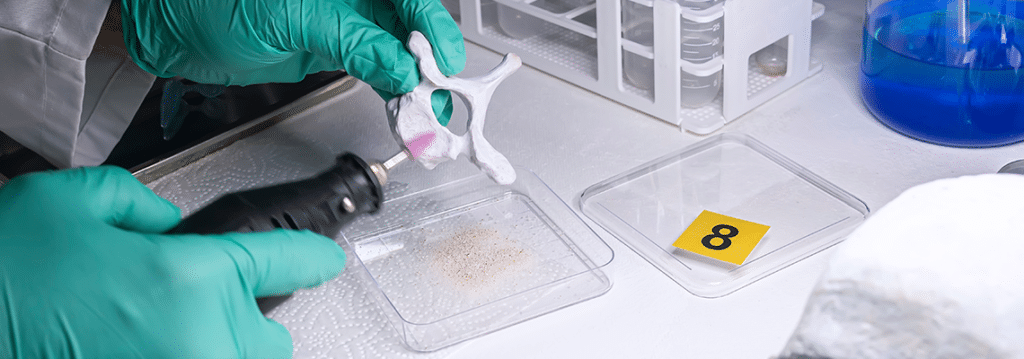Seeking beta testers for automated sperm extraction solution for sexual assault cases
February 12, 2019
How can one of the most important forensic investigative procedures be so flawed? Currently, the analysis of sexual assault kits is tedious and requires skilled technicians, yet still fails to recover large amounts of DNA evidence. InnoGenomics plans to change this by giving laboratories a scalable sperm extraction solution to help make the sexual assault kit processing fully automated, while preserving the integrity of samples.
To solve these issues of sample loss and inefficiency, InnoGenomics teamed up with Hamilton Company, a leading global manufacturer in automated liquid handling workstations and sample management systems. The result is SpermTrap.
Using this method with InnoGenomics’ specialized sperm filter, SpermTrap can retain up to 92% of the male DNA, a more than 20% increase over conventional extractions. Further, the device carries over less than .05% of the female DNA from the media within the sperm fraction. Even in highly mixed samples with low levels of male DNA, SpermTrap outperforms other methods.
But more importantly, SpermTrap increases a laboratory manager’s ability to automate the process completely. And, while considering an upgrade to the fully automated sexual assault kit processing system, labs can try the manual version of SpermTrap to prove the concept directly. The manual version requires no upgrade, as it’s compatible with tools and workflows common in today’s forensics labs.
To carry out the process manually, technicians can use the SpermTrap system in most tabletop centrifuge machines. For users who want to fully automate the process, the SpermTrap system is fully compatible with Hamilton’s AutoLys SAE Star. Automating the last remaining manual steps can greatly increase efficiency.
InnoGenomics will host a SpermTrap training workshop in spring 2019. If your lab is interested in either attending the workshop or becoming a beta tester for SpermTrap, send your inquiries to InnoGenomics at [email protected]. SpermTrap is set to enter the market in early 2019.

